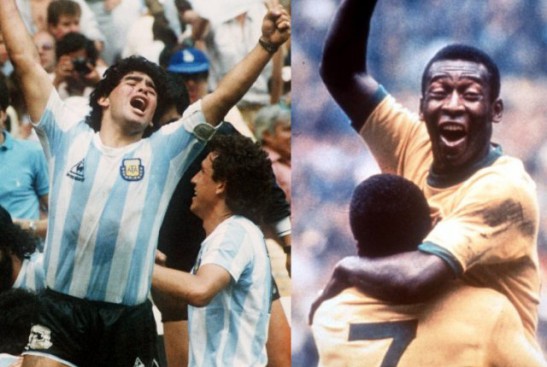Introduction
In a team sport, it can often seem obscene – even absurd – to reward a single player ahead of the collective.
But, equally, every match is no more than an accumulation of individual moments that is why more an more players practice. Games are secured by unlikely saves, defined by timely tackles, unlocked with visionary passes and settled by important strikes.
Some players undoubtedly perform these specific tasks with greater consistency and to a higher quality than others. So, as difficult as it is for any player to perform in isolation, some are clearly more important to glories than their teammates.
Indeed, depending on their position and style, certain players form the building-blocks of great teams, others provide the spine and an elite minority complete teams – lifting them to greater levels.
There can be no denying, for example, that Pele and Garrincha’s irreverent excellence removed a half-century of fear from Brazilian football in 1958. Or that Argentina would not have won the 1986 World Cup without Diego Maradona.
Yet the counterpoint to that, of course, is that the otherwise fixed Argentine formation was specifically designed to maximise his contribution.
It’s the eternal debate in football, really, when it comes to assessing the exact abilities of any player. We see it raging today about Cristiano Ronaldo, Leo Messi and Xavi.
Does the system make the players or do the players make the system?
The answer, naturally, depends on the individual situations but can still usually be found somewhere in between.
Certainly, some very good players were fortunate enough to play almost all of their careers in systems that perfectly suited them. Other, potentially better players were equally unfortunate to spend their best years in teams that didn’t make best use of their talents.
And, on that issue, Gabrielle Marcotti has posited an interesting question. What if Johan Cruyff’s family had moved to Aldershot rather than Amsterdam?
Would he have been as influential – or even had his natural technique so ably enhanced – had he grown up in a footballing culture that wasn’t as ripe for innovation as Holland in the ’60s?
As such, when it comes to deciding the greatest players of all time, there is always a caveat. Individuals can only ever be products of their time and place.
Even in a tournament where one player imposed his personal will like no other in history, the outcome was still hostage to fortune. In 1986, Maradona was lucky to be in his prime in the kind of exhausting conditions that favoured attacking football. It could even be said that previous failures had only sharpened his resolve and thereby enhanced his performance.
For once, the stars aligned. Almost literally, given the weather conditions.
Would Maradona have been as effective had Carlos Bilardo persisted with 4-4-2? Would the exceptional Duncan Edwards have gone on to dominate international football had he survived Munich? Would Vava have scored so many high-profile goals had he been born Bolivian instead of Brazilian?
The answer to all of these questions is open to debate. With some of the arguments possessing more persuasive evidence than others.
But then that’s also the point. In a debate like this, we can only go on the evidence we have.
And, despite so many conditions in his favour in 1986, there was still pressure on Maradona to perform. But the fact is that he did perform. Supremely.
So, in order to determine the 100 greatest players of all time, we’ve attempted the following approach. First, we tried to isolate every player’s basic ability. Secondly, and most importantly, we attempted to examine how extensively he actually applied it within the parameters of his career.
As such, application of ability is key.
Because of that, there is a natural weighting towards the top teams and competitions. After all, the biggest measure of whether a player is maximising his ability comes in his battles against the very best of his time.
A consequence of this, too, is that there’s greater concentration of post-war footballers. Because of the absence of fully-formed, top-level competitions in the first half of the 20th century, it was simply harder to determine how good players really were. The ‘bar’ for those eras, so to speak, was more difficult to define.
But this list still accounts for truly exceptional achievement in any era, environment or location. If a pre-war player was even considered the most influential of his time – for example – then his career had to be measured. If a top team bottled a big game but one player maintained his level of performance, then that quality had to be considered favourably.
And, finally, if one player drove a lesser team to Champions League qualification or a World Cup, then it had to be examined whether that feat was the equal of an international star forcing an already-competitive team over the line.
But the important question, then, is whether that player was capable of stepping up to the star’s level. Could he apply his ability on an elevated field?
The best players in history constantly did.
The purpose of this list is to, at least, create debate; at best, point that debate in a relatively informed direction. As such, it is highly unlikely any one reader will agree with a significant minority of the list – let alone a majority or all of it.
Before we invite opprobrium or rage at the placing of specific players or outright omission of others, please consider one caveat.
The so-called short-list to this entry ran to almost 500. As such many exceptional players were necessarily left out. And, in many cases, the margins were so tight that even the slightest tweak in interpretation of the formula would have caused drastic changes.
In saying all of that, however, we have attempted to be as honest as possible.

